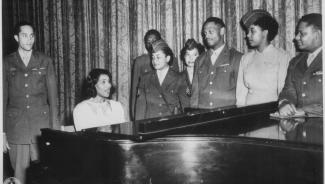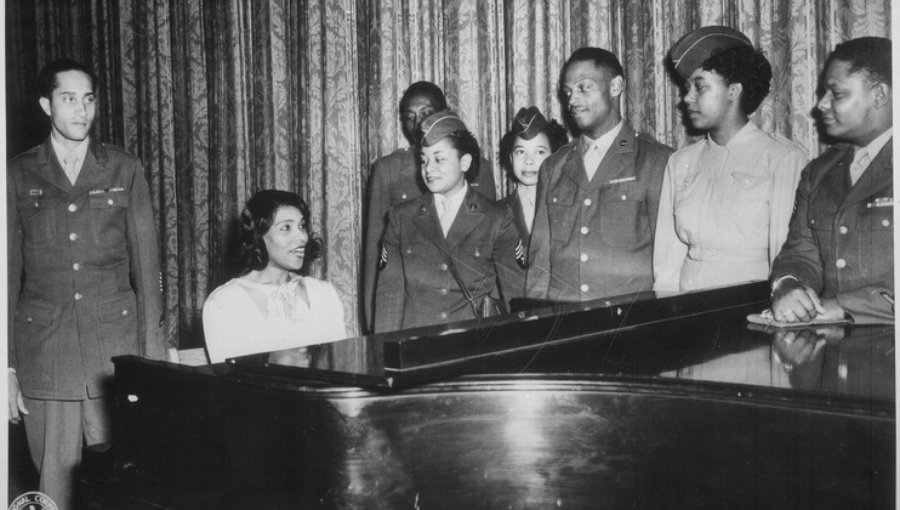Black History Month Is for All of Us

 The month of February is set aside to reflect on the many Black leaders who have shaped United States history, and who are often unjustly skimmed over in our classrooms. We can learn valuable lessons—and help build a more unified and redeemed body of Christ—by remembering Black role models and acknowledging large chunks of our mutual history.
The month of February is set aside to reflect on the many Black leaders who have shaped United States history, and who are often unjustly skimmed over in our classrooms. We can learn valuable lessons—and help build a more unified and redeemed body of Christ—by remembering Black role models and acknowledging large chunks of our mutual history.
As I’ve grown in pursuit of cross-cultural relationships, I have found myself embarrassed by my own level of ignorance about major figures in history. I am so far behind in my knowledge of literature, music, civics, and science that I need several Black history years to catch up. It might not be my fault that I was never taught Black history in school, but I choose to honor my sisters and brothers by learning these lessons now.
It can be difficult to break free from the tokenism with which Black History Month is often treated. One or two famous figures are given all the attention, while hundreds of others remain unrecognized. Can you name five Black figures of historical significance? It’s not too hard. Now how about ten more? Even with regard to the most popular figures like Martin Luther King Jr. and Frederick Douglass, how many of us can say we’ve actually read significant portions of their original writings?
Take some time this month to reflect on the contributions made by our Black forbearers. Read speeches other than “I Have a Dream,” for example, and broaden your mental library of historical figures. Or check out these excellent resources that will help you in your journey this month:
His Story, Our Story by Ramon Mayo: Hot off the presses! This brand new 31-day devotional highlights important figures in Black history and what they teach us about God’s purpose for our own lives today. Mayo is a writer and speaker with a heart for racial healing within the body of Christ. His years of expertise in developing cross-cultural relationships in churches and communities help ground his book in the gospel’s call for justice-minded reconciliation. His Story, Our Story includes discussion questions and prayer prompts for connecting the journeys of African American leaders with your daily walk with Christ.
Hero for Christ by Chris Sunami: Ideal for a small group or Bible study, Hero for Christ offers a Christ-centered guide to changing the world. By examining the lives of famous Christians from a beautiful array of backgrounds, we become mindful of our need for rich diversity among our heroes. Sunami profiles 22 Christian heroes (including Archbishop Desmond Tutu, Sojourner Truth, and Mahalia Jackson), giving us a glimpse into the heart of Christ through the leaders who sought to be his hands and feet on earth. Chris’s book offers lessons of justice, peace, and personal growth that are drawn directly from the message of the gospel and the heroes who have served it.
Inauguration Ball 2009 by Richard Kenyada (from his book Reflections in the Dark Room): In this short story, we are invited to imagine a gala of history’s great Black figures on the night of President Obama’s first inauguration. Regardless of your politics, this narrative offers a compelling look at the many accomplishments and struggles that culminated in that historic night. Spend a couple of minutes each day this month learning about a broad array of people who have shaped our lives in today’s world.
All three of these resources are compact and accessible, even for the busiest among us. They offer an opportunity to learn about our role models from Black history and how we can be inspired by them to live out Christ’s purpose for our lives.
What will you do to celebrate Black History Month? Leave us a comment.
Katelin Hansen (@strngefruit) is an alumna of the University of Richmond InterVarsity undergraduate and Umoja chapters, and is currently a member of InterVarsity’s Emerging Scholars Network at The Ohio State University. She is the editor of By Their Strange Fruit (BTSF), an online forum to facilitate racial justice and reconciliation from a Christ-minded perspective, increasing the visibility of healthy and holy racial discussion.
You might also be interested in:
A Plea for Racial Reconciliation



